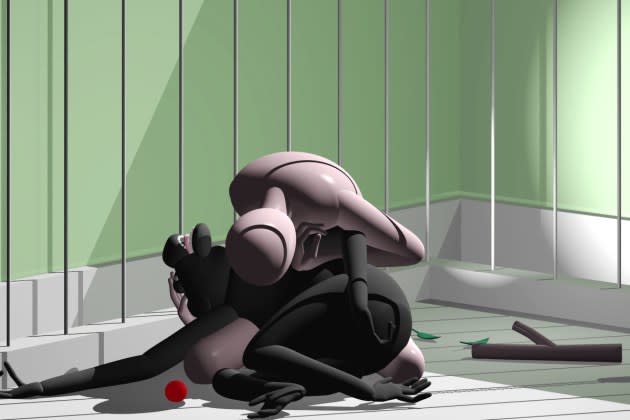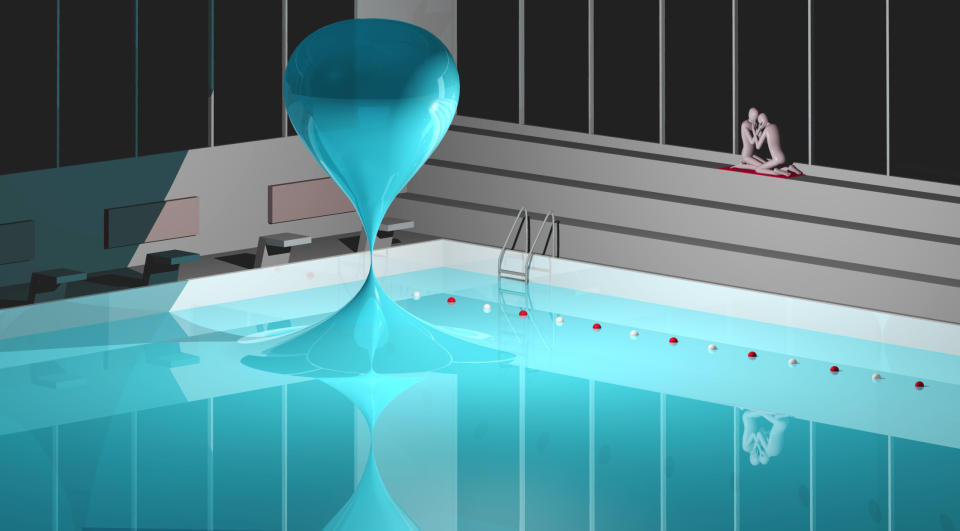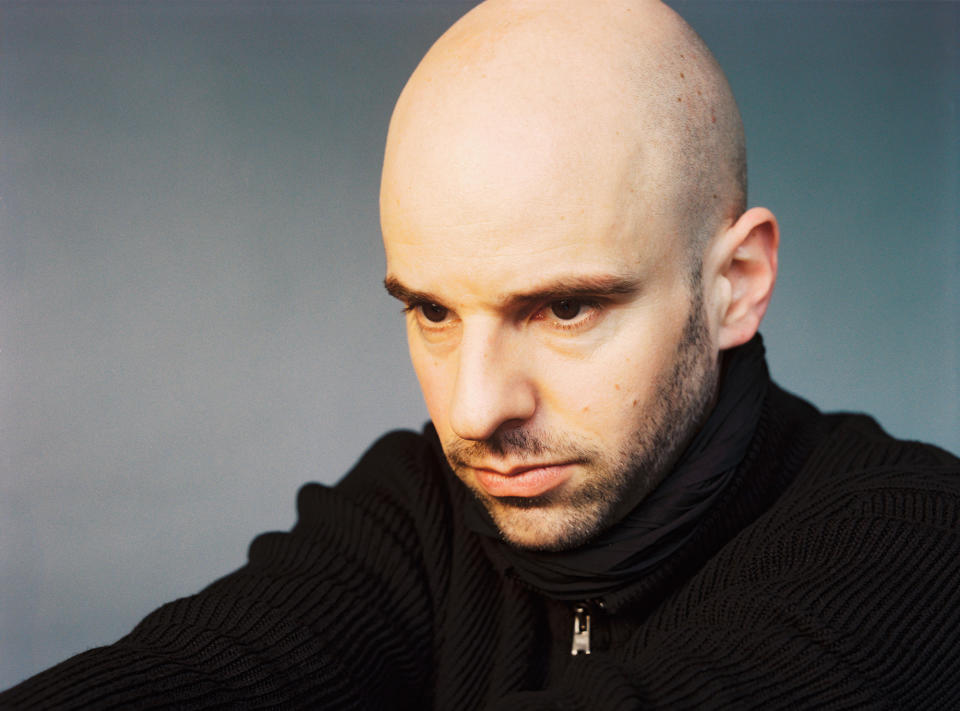Experimental Animation Shines in Annecy Contrechamp Title ‘Journey of Shadows’: ‘I Understand Animation as a Model to Reflect Ourselves’

The minimal and subliminal converge in Swiss artist Yves Netzhammer’s Annecy Contrechamp title “Journey of Shadows” (“Reise der Schatten”).
Netzhammer, who made his feature debut with “Journey,” is well known for his work in sculpture, animation, mixed-media and video, all of which informed his animated project and abstract rendering of the human condition.
More from Variety
DC's 'Creature Commandos,' Previewed in Annecy, Echoes James Gunn's Unmistakable Voice
Annecy: Thailand-China Animation 'Out of the Nest' Picked Up by All Rights Entertainment
“I’ve developed many animation works for installations over the last few years. In the process, a kind of visual vocabulary with human figures, animals and objects has emerged,” Netzhammer told Variety.
“My feature focuses on the narrative structure, which, on the one hand, follows cinematic rules, but on the other hand, functions in a circular way due to my associative visual language and allows us to think of many things, both personal and collective. My characters are given an identity through this feature film,” he added.

Produced by Stella Händler at Freihändler Filmproduktion GMBH and Jolanda Gsponer a Liechti Filmproduktion, who also handle world sales rights, alongside Gabriela Bloch Steinmann and SRF Schweizer Radio und Fernsehen, the film sets up three main figures on screen, two mannequin-styled forms managing a tumultuous romantic relationship through bouts of self-reflection, and a simian companion. The aesthetic is both modern and futuristic in its rendering. A delicate choreography ensues, as the figures make quick work of love’s emotional labor and the inevitable toils associated.
Contemplative and clever, while also mind-bending, taboo and raw, the nude-hued silhouettes carry all the trappings of modern flesh and bone as they meander around a veritable fugue state.
“What impresses me most is the deep humanity with which Yves’ figures address us, even though they have neither a face nor other individual attributes,” Händler relayed.
Netzhammer wrote, directed, and painstakingly animated the 3D feature, which debuted at the International Film Festival Rotterdam earlier this year.
“The computer program Infini-D is the executive organ for modeling and animation. The figures and scenery I created are first produced in a uniform style as 3D models. Then I create a rough animation sequence before adjusting the finer movements in detail work,” Netzhammer explained.

“This animation work, as well as the technical preparation for a feature-length film, is enormously time-consuming and complex. With this approach, I believe I can offer the audience an extraordinary cinematic experience,” he added.
With no words to clutter the film’s colorful atmosphere or muddy the emotions presenting themselves through fluid movement, the forward and stalled trajectories are ever more striking. The images hold viewers captive rather than relying on a preconceived plotline full of concrete meaning. Essentially, the viewer is left to project their desires onto the austere figures, as the film calls into question our agency while ruminating on the connections we make, bend, then break.
A visceral jaunt, oddly warm and inviting while uncanny and void of precise emotion, the forms take on the plotlines cast upon them by an audience rather than being front-loaded by the filmmaker. The figures careen into and away from one another like clockwork and destiny at once, leading to an assembly line of experience for the nameless forms – at times brutal, illogical and dystopic.
“My reduced style allows for a lot of openness. This means that you can empathize with the characters and go on this cinematic journey with them. Of course, this openness also raises the question of how, or in what way, we can still tell ourselves stories in a world so saturated with information and emotions,” Netzhammer explained.
“I actually understand animation as a model to reflect ourselves in the world and how we think about the boundaries of subjective and collective freedom,” he continued.
Accompanying the characters, a sophisticated, astral score with music by Anthony Pateras, curated by sound designer Oscar Parcival van Hoogevest, that works to realize the transcendent nature of the images. Fluid morsels of matter drift through the scenes alongside it, recalling humanity but standing firmly outside any bounds equated with the species.
An affinity for non-natural artforms is apparent, as Netzhammer proclaims, “Naturalistic aesthetics and narratives run the risk of illustrating prefabricated knowledge.” By employing techniques that test the bounds of whimsy, “Journey of Shadows” is on track to provide another immersive and innovative artistic odyssey.

Best of Variety
Sign up for Variety’s Newsletter. For the latest news, follow us on Facebook, Twitter, and Instagram.


